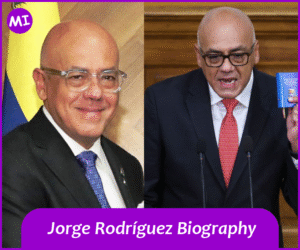
J. Edgar Hoover Biography – Explore the life of J. Edgar Hoover, the first Director of the FBI. Learn about his net worth, age, early life, education, family tree, career achievements, awards, and controversies surrounding his personal life.
John Edgar Hoover (January 1, 1895 – May 2, 1972) was a pivotal figure in American law enforcement, serving as the first Director of the Federal Bureau of Investigation (FBI). His tenure, spanning nearly five decades, saw the transformation of the FBI into a formidable national agency. However, his legacy is complex, marked by significant achievements and controversies.
J. Edgar Hoover Biography: Profile Summary
| Field | Details |
|---|---|
| Full Name | John Edgar Hoover |
| Date of Birth | January 1, 1895 |
| Date of Death | May 2, 1972 |
| Place of Birth/Death | Washington, D.C., USA |
| Education | LL.B. (1916) and LL.M. (1917), George Washington University Law School |
| Career | – Entered DOJ in 1917; became Bureau of Investigation director in 1924- First Director of FBI (1935–1972), serving under eight presidents |
| Key Contributions | – Professionalized the FBI: created fingerprint database, forensic lab, and FBI Academy- Led high-profile efforts against gangsters, espionage, radicals, and organized crime |
| Controversies | – Oversaw illegal surveillance programs (COINTELPRO) targeting civil rights activists, political opponents, and others- Used secret files to influence politicians |
| Legacy | – Transformed the FBI into a leading federal law enforcement agency- Power unchecked led to reforms: FBI director term limits and oversight mechanisms |
| Cultural Presence | – Subject of the book G‑Man (Pulitzer Prize, 2023)- Portrayed by Leonardo DiCaprio in the film J. Edgar (2011) |
Key Takeaways
- Early Life: Born in Washington, D.C., Hoover remained a lifelong resident of the city.
- Education: He earned law degrees from George Washington University.
- Career: Hoover joined the Department of Justice in 1917 and became the Director of the FBI in 1935, serving until his death in 1972.
- Legacy: He is credited with modernizing law enforcement but also criticized for overreach and abuses of power.
- Personal Life: Hoover never married and had no children.
Early Life and Education
Hoover was born on January 1, 1895, in Washington, D.C., to Dickerson Naylor Hoover and Anna Marie Scheitlin. He attended Central High School, where he participated in the debate team and ROTC program. He later earned both a Bachelor of Laws (LL.B.) and a Master of Laws (LL.M.) from George Washington University Law School.
Career Achievements
Hoover began his career at the Department of Justice in 1917. By 1924, he was appointed Director of the Bureau of Investigation, which later became the FBI in 1935. Under his leadership, the FBI implemented advanced forensic techniques and established a centralized fingerprint file. Hoover played a significant role in combating organized crime, espionage, and subversive activities.
Controversies
Despite his accomplishments, Hoover’s tenure was marred by controversies. He was known for excessive surveillance of political figures, activists, and celebrities. His secretive practices and accumulation of personal power raised concerns about civil liberties violations.
Personal Life
Hoover never married and was known to be extremely private. He was very close to his mother, Anna Marie, with whom he lived until her death in 1938. Speculations about his personal relationships, including his close association with FBI Associate Director Clyde Tolson, have been subjects of public intrigue, though no conclusive evidence has confirmed these speculations.
Death
Hoover died in his sleep on May 2, 1972, at his Washington, D.C., home. He was 77 years old. His death marked the end of an era for the FBI, and he was buried in Congressional Cemetery in Washington, D.C.
Legacy
Hoover’s impact on American law enforcement is undeniable. He built the FBI into a premier investigative agency. However, his methods have been scrutinized for ethical implications, leading to ongoing debates about the balance between national security and individual freedoms.
Cultural Depictions
Hoover’s life has been portrayed in various media, most notably in the 2011 film “J. Edgar,” directed by Clint Eastwood and starring Leonardo DiCaprio as Hoover. The film explores his career and personal life, highlighting the complexities of his character.
Conclusion
J. Edgar Hoover remains a controversial figure in American history. His contributions to law enforcement are significant, yet his legacy is complicated by actions that challenged democratic principles. Understanding his life offers insights into the evolution of federal law enforcement and the perennial tension between security and liberty.
FAQs About J. Edgar Hoover
-
Who was J. Edgar Hoover?
He was the first Director of the FBI and one of the most powerful law enforcement officials in U.S. history. -
When was he born and when did he die?
Hoover was born on January 1, 1895, and died on May 2, 1972. -
What is he best known for?
Hoover is best known for building the FBI into a major national agency and serving as its director for nearly 50 years. -
Did he spy on civil rights leaders?
Yes, Hoover authorized secret surveillance of figures like Martin Luther King Jr., which remains highly controversial. -
What was his background before the FBI?
He started working at the U.S. Department of Justice in 1917 and quickly rose through the ranks due to his efficiency and intelligence-gathering skills. -
How long did he lead the FBI?
Hoover was FBI Director from 1924 until his death in 1972—an unprecedented 48 years. -
Was his personal life ever questioned?
Yes, there were longstanding rumors about his private life, including speculation about his sexuality, but much of it remains unproven. -
What impact did he have on law enforcement?
He modernized American policing, introduced scientific crime-fighting techniques, and created a centralized fingerprint database. -
Why is Hoover still controversial?
Despite his achievements, Hoover’s abuse of power, secret files, and political targeting make his legacy deeply debated. -
Is the FBI building named after him?
Yes, the FBI headquarters in Washington, D.C., is officially named the J. Edgar Hoover Building.




